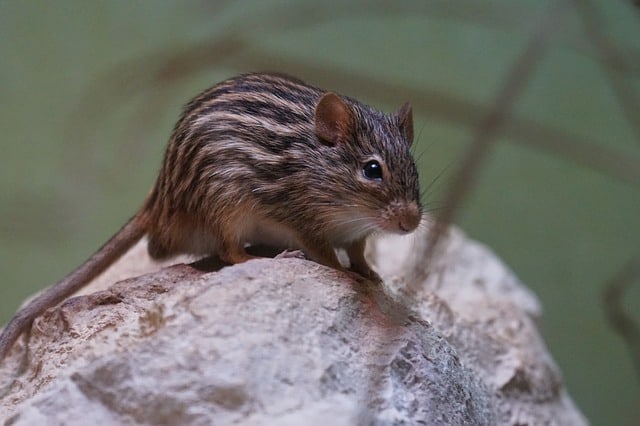African striped mice (Rhabdomys Pumilio) remain equally attentive and quickly respond to danger regardless of the changing season or limited resources. This was discovered by South African scientists who studied how 93 striped mice cope with laboratory experiments to assess their cognitive abilities.
Changes that occur in the natural habitat of the animal (including humans) noticeably affect its physiological parameters: for example, in order to warm in the cold, the body requires large reserves of energy, and in order not to encounter dehydration in the dry period – more moisture. Of course, physiological changes also affect the cognitive abilities of animals, but natural selection suggests that individuals must be able to adapt well for their well-being: in other words, in adverse conditions, animals most likely cannot afford to reduce their own abilities to a critical level at which survival is already will be greatly complicated.
A team of scientists led by Celine Rochais from University of the Witwatersrand, Johannesburg, South Africa decided to study how cognitive abilities adapt to changing weather conditions in African striped mice. Their study involved 93 striped mice living in the Gogap South African Reserve; observations of animals were carried out in the summer, dry period (from January to March: average temperature 23.9 degrees Celsius) and in winter (July to August: average temperatures 12.2 degrees Celsius). In addition, scientists estimated the number of plants – the main food source – in the habitats of striped mice.
To evaluate the cognitive abilities of mice, scientists chose two tests. The first is a reaction test: mice were placed one by one in a box with a screen on the ceiling, which included a video with a bird of prey, and watched how quickly the animal noticed the danger and tried to hide. The second test was spatial thinking and memory: the mice were seated on a round structure with compartments along the entire diameter ( Barnes’ labyrinth ) and watched how quickly they could find a compartment in which they can hide. The experiments were carried out in both studied seasons, and glucose was measured in the blood of mice.
The amount of food available for striped mice during the study period — from summer to winter — increased six-fold, their body weight increased, as well as their blood glucose level (both indicators, p <0.001). Regardless of the time of year, the cognitive abilities of mice (response to the stimulus and the number of errors when searching for the desired compartment in the maze) remained at the same level (p> 0.05), but the mice with the highest basal blood glucose level within the group reacted most quickly, and reactions were also better observed in females and not in males (p <0.001). Moreover, if glucose in the blood was raised specifically (mice were fed jam for this), the reaction worsened – but only in males.
African striped mice need to be alert and fast throughout the year: this helps them escape from predators. Apparently, this is precisely why their cognitive abilities do not depend on the changing season. However, they depend on the level of glucose, but on an individual level, and not on how this level changes depending on the availability of resources at different times. At the same time, the effect provided by the high glucose level is also very limited: when a certain threshold is crossed, the cognitive abilities of mice begin to decrease.
The most remarkable feature of the African striped mouse is, of course, the stripes on the back: for their formation, as it turned out a few years ago, is responsible for the gene, which is also responsible for their formation expressed in the skin cells on the abdomen, giving it a light hue.
